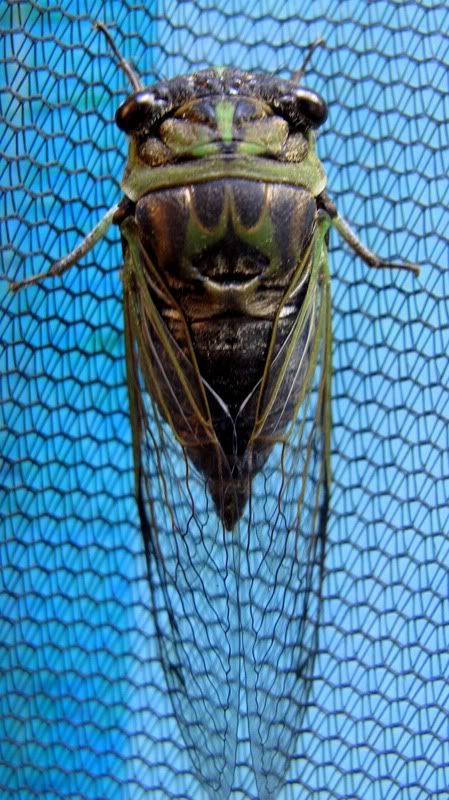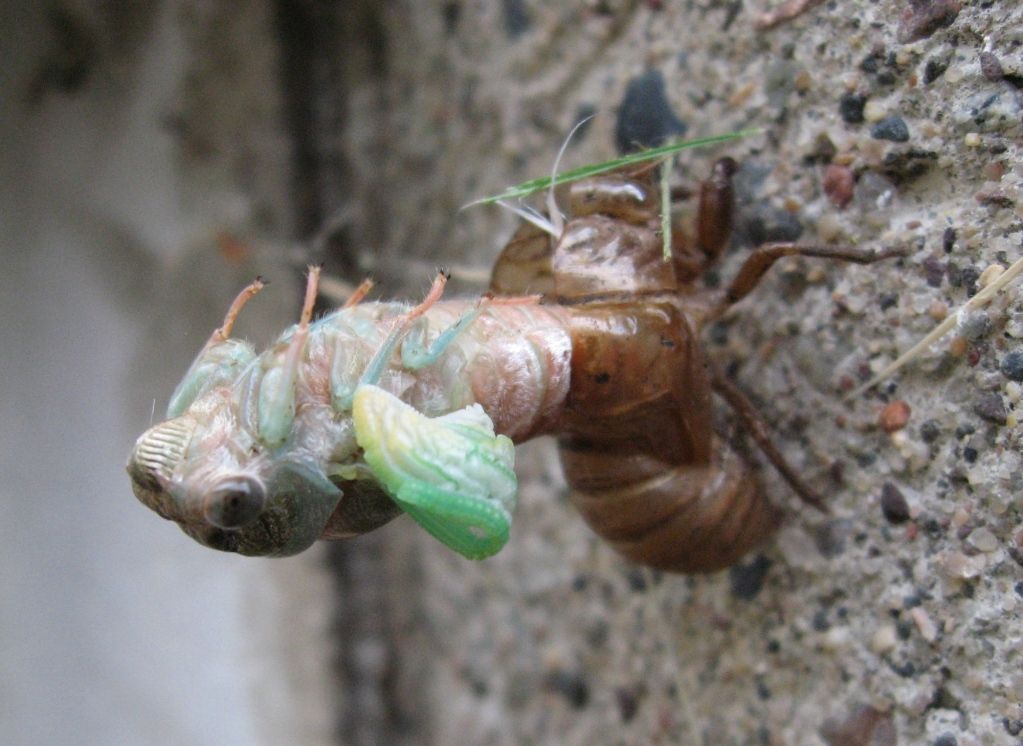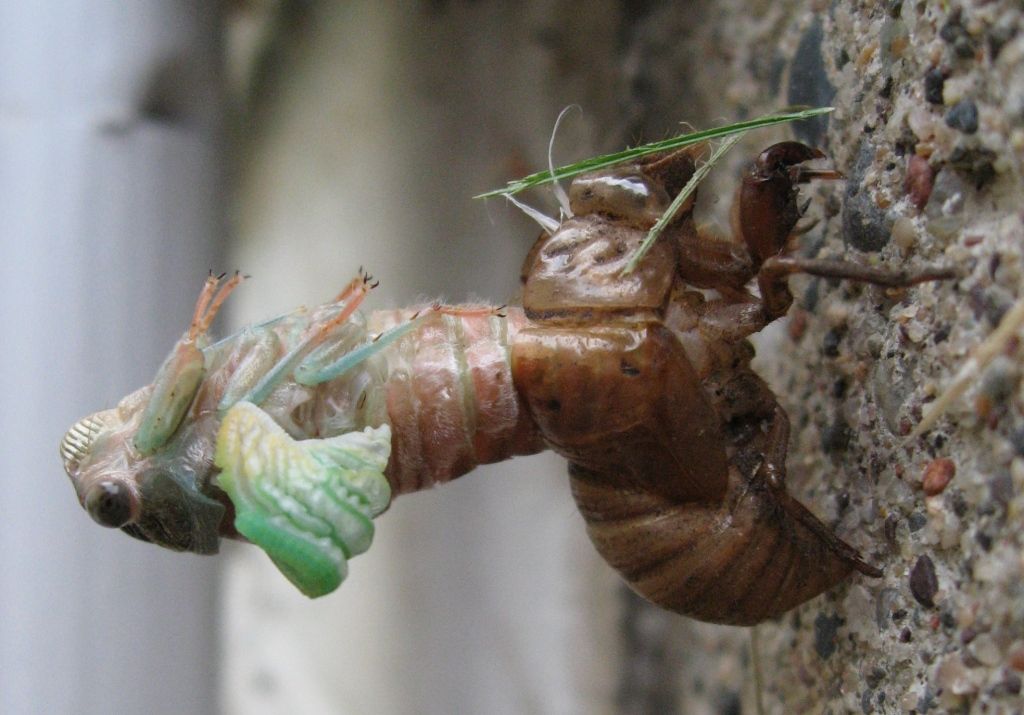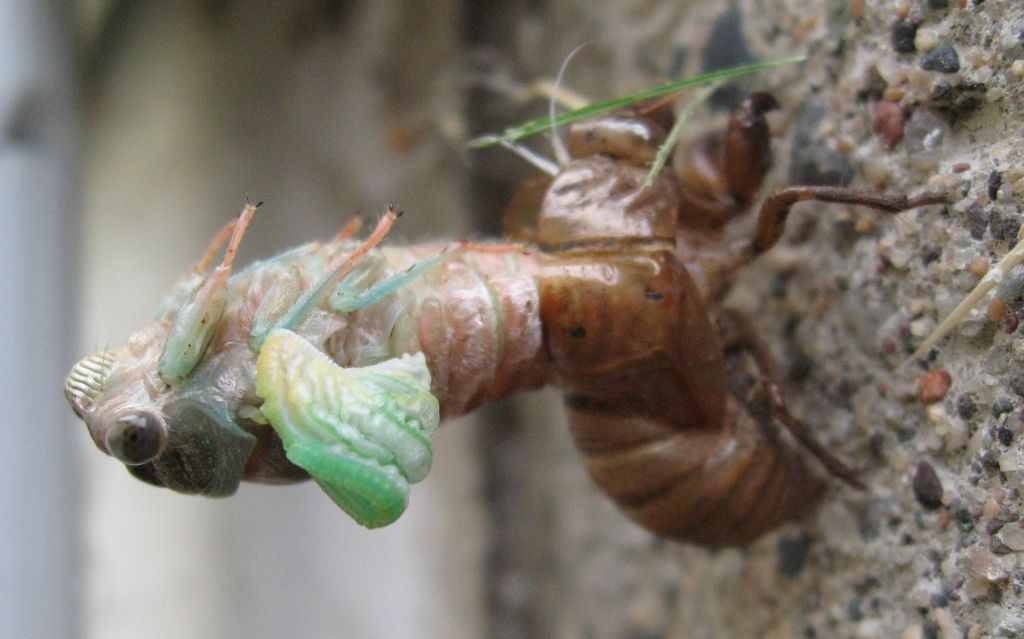Found this perched on my tent this morning. Love to identify insect visitors.

Tibicen cicadas are 1-2 inches long, with characteristic green, brown, and black markings on the top of the thorax, and tented, membranous wings extending past the abdomen. The fore pair are about twice the length of the hind pair. Males produce loud calls in the afternoon or evening (depending on the species) to attract females. These sounds, distinctive for each species, are produced by organs below the abdomen’s base. These calls range from a loud buzz to a long rattling sound. Adults feed using their beak to tap into the xylem of plants. Nymphs feed from the xylem of roots.
Many animals feed on cicadas, which usually occurs during the final days when they become easy prey near the ground. One of the more notable predators is the cicada killer. This is a large wasp that catches the dog day cicada. After catching and stinging the insect to paralyze it, the cicada killer carries it back to its hole and drags it underground to a chamber where it lays its eggs in the paralyzed cicada. When the eggs hatch, the wasp larvae feed on the paralyzed, but still living, cicada.
~Wikipedia








